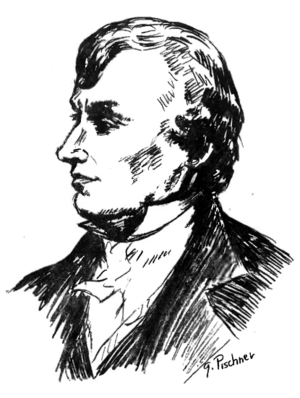Robert Finley facts for kids
Robert Finley (1772 – November 3, 1817) was an American Presbyterian church leader and teacher. He is known for helping to start the American Colonization Society. This group created the country of Liberia in West Africa as a place for free African Americans to live.
Finley worked for 20 years as a pastor at a Presbyterian church in Basking Ridge, New Jersey. He also taught at an elementary school and a school for boys. In 1817, he briefly served as the president of the University of Georgia before he passed away.
He was born in Princeton, New Jersey. Finley graduated from the College of New Jersey (which later became Princeton University) when he was just 15 years old.
Quick facts for kids
Robert Finley
|
|
|---|---|
 |
|
| President of the University of Georgia | |
| In office 1817–1817 |
|
| Preceded by | John Brown |
| Succeeded by | Moses Waddel |
| Personal details | |
| Born | 1772 Princeton, New Jersey, U.S. |
| Died | November 3, 1817 (aged 44–45) Athens, Georgia, U.S. |
| Spouse | Esther Caldwell |
| Children | Robert Finley, Rev., Esther Caldwell |
| Relatives | Josiah Finly (brother) James Caldwell (father-in-law) |
| Alma mater | Princeton University |
Contents
Robert Finley's Early Life
Robert Finley was born in Princeton, New Jersey, in 1772. His parents were James Finley and Ann Angrest. His father, James Finley, was born in Glasgow, Scotland in 1737. He was a yarn merchant there.
James Finley moved from Scotland to New Jersey in 1769. Robert Finley's grandparents were James Finley and Ann McDonald Finley.
A Pastor and Teacher
Robert Finley started at the College of New Jersey when he was 11. He graduated in 1787 at age 15. At that time, the college also served as a school for younger boys.
He taught in several places, including Charleston, South Carolina. Many homes there had enslaved African Americans. Thousands more worked on large farms outside the city.
In 1794, Finley became a licensed minister by the Presbytery of New Brunswick, New Jersey. He returned to Princeton in 1793 to study religion. He also worked as a tutor there.
Finley became a trustee of the university in 1806. He served until 1817, when he moved to Georgia.
In 1795, Finley became the pastor of the Presbyterian church in Basking Ridge, New Jersey. He worked there for 20 years. He was a popular speaker and a well-known teacher. He helped develop the idea of the modern Sunday School curriculum.
The Brick Academy School
Finley taught at the Princeton University Grammar School. He also taught at the Basking Ridge, New Jersey Classical School, a boys' school. This school was also known as the Brick Academy. He worked there from 1795 until he became president of the University of Georgia in July 1817.
In 1795, Dr. Robert Finley reopened the private school, the Basking Ridge Classical School. Classes first took place at the Presbyterian church's parsonage. Later, a new wooden school building was built near the church.
By 1809, more students were joining the school. Finley helped raise money and build a new two-story brick building. This building was located in the center of Basking Ridge village and is known as the Brick Academy.
Boys came from nearby areas and from farther away, like Virginia and New York City. They attended this private school to prepare for college. Most of them studied a classical education to get ready for the College of New Jersey (Princeton University). Students lived with Dr. Finley and other local families. Two buildings still standing near the Brick Academy were later used as student dorms.
Helping Found Liberia
Dr. Finley and Samuel John Mills helped create the National Colonization Society of America. They also helped form the American Colonization Society (ACS) in Washington, D.C. in 1816 and 1817. They asked many people for donations, including former students.
The American Colonization Society wanted to help free black Americans move to a colony in West Africa. Both some abolitionists (people who wanted to end slavery) and people who owned slaves supported the Society, but for different reasons.
Free black people faced unfair treatment in both the northern states (where slavery was slowly ending) and the southern states (where slavery was common). In the South, some feared that free black people might encourage enslaved people to rebel.
Some abolitionists thought that black people would have more opportunities in Africa than in the United States. They hoped that if a colony was available, more enslaved people would be freed.
The Republic of Liberia declared its independence on July 26, 1847. Between 1822 and the American Civil War, over 15,000 free black Americans and 3,198 people from the Caribbean moved to the settlement. Many pioneers faced very difficult conditions and illnesses in the early years.
Finley's brother, Josiah Finley, was a governor of Mississippi-in-Africa. This was an ACS colony on the Pepper Coast. He served from June 1837 to September 10, 1838, when he died in a conflict with local fishermen.
The U.S. did not officially recognize Liberia's independence until February 5, 1862. This happened during the American Civil War. Before then, Southern lawmakers had opposed it. After the Southern states left the Union, the remaining lawmakers voted to recognize Liberia.
In 1817, Finley became sick while traveling south to start his new job as president of the University of Georgia. He passed away three months after he arrived. He was buried in Jackson Street Cemetery on the school's north campus in Athens, Georgia.
Images for kids
 | Percy Lavon Julian |
 | Katherine Johnson |
 | George Washington Carver |
 | Annie Easley |


